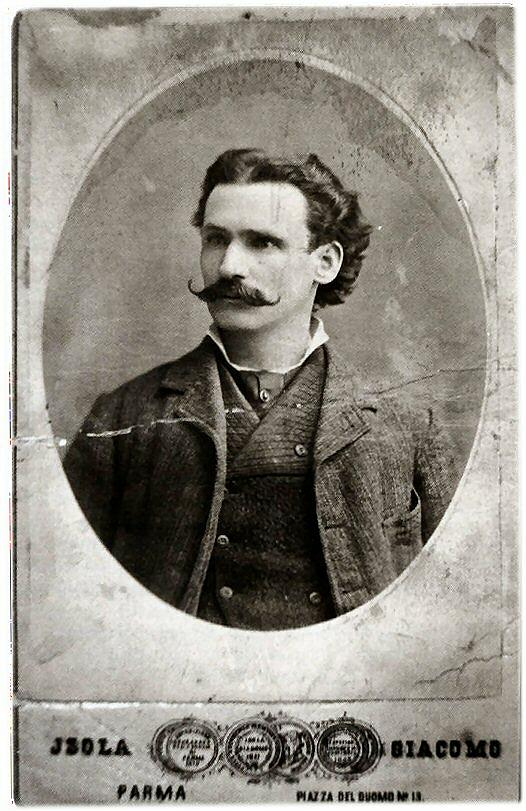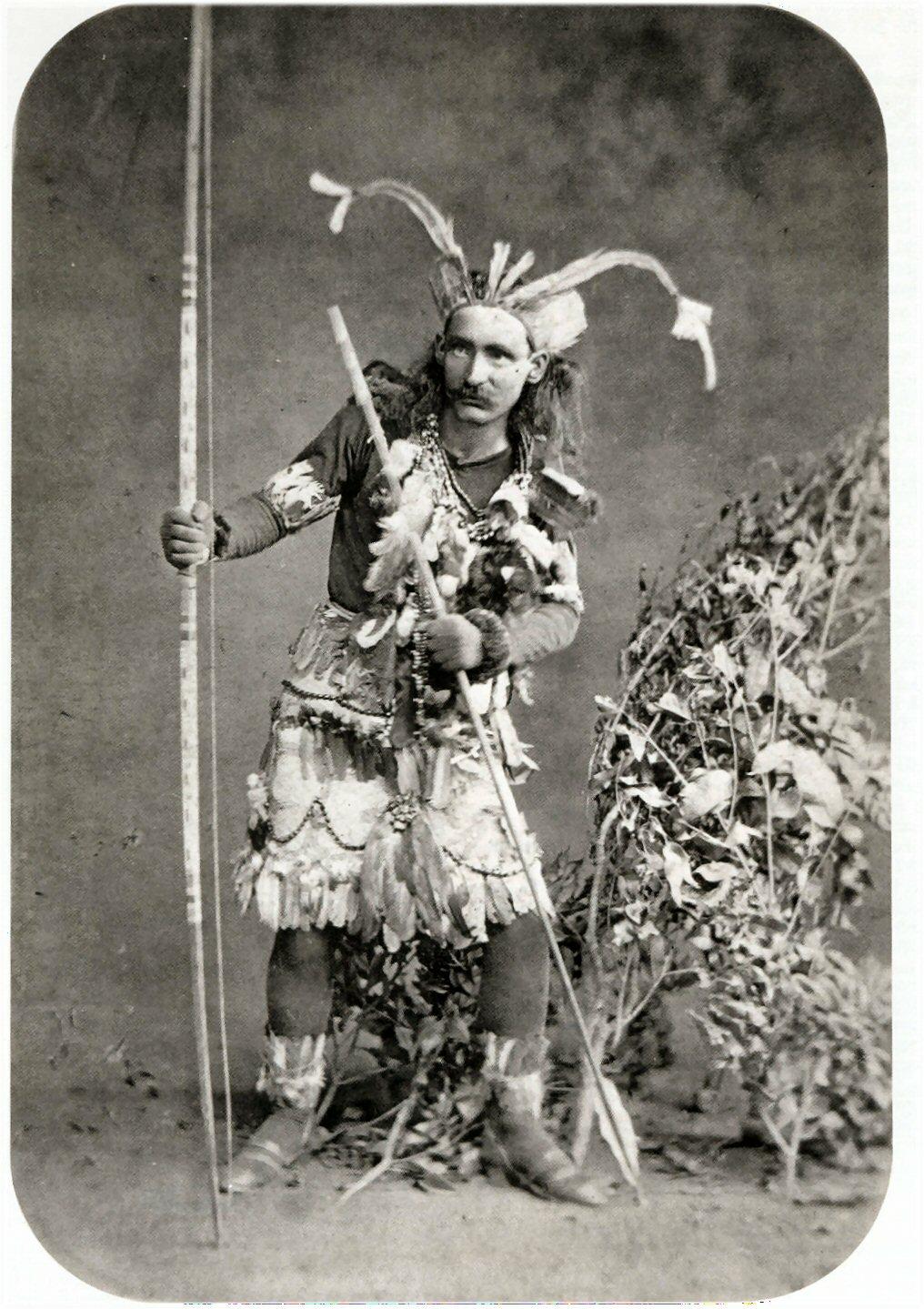Lodovico Giraud was bon in Parma on March 2nd, 1846. He was working in his twenties at the office of Domenico Fugazza,
who appreciated music.
Domenico Fugazza had him study singing first privately then with Giuseppe Griffini, professor at the Regia Scuola di
Musica del Carmine, starting on November 1st, 1867. His family could not affford to pay for the schooling. Giraud
studied with great ardor. On February 28th, 1871 he went to Milano, where he made his debut a year later in Jone at
the Politeama.
He had a good career thanks to the purity of his timbre and a large squillo, in operas such as Norma,
Ernani, Trovatore, Aida and Ruy Blas. He was at the Regio in Parma for the seasons 1876/77 and 1879/80. He opened his
first season on December 26th with Diana di Chaverny (composer: Filippo Sangiorgi). The public disliked the
work and it was a fiasco. However, in the following Trovatore and Jone, Giraud was greeted with enthusiasm and
was asked to come forward several times. During his second season in Parma, he repeated his success with Robert le
diable and Niccolò de' Lapi by Pacini.
He sang at the Pagliano in Firenze, at the Brunetti in Bologna, at the Politeama in Genova, at the Malibran in
Venezia, at the Ristori in Verona, at the Municpale in Piacenza, at the Politeama in Firenze. He also sang outside
Italy: at the Prinicpal in Barcelona (1876), and in various countries in Latin America: Paraguay, Cuba, Mexico, and
Brazil.
He returned to Brazil in 1880 and triumphed in Il Guarany. He donated the costume and arms that he received after
singing Il Guarany to the Antique museum. Two years later, while still in Latin America, he had an attack of yellow
fever during the afternoon of October 15th, 1882 in Guadalajara. As he had to sing Il trovatore that evening
and the theater was fully booked, he refused to be replaced. Hopped-up on medicine, and despite the advice of both his
doctor and his wife, Maria Givoni, he sang. He had a triumph and had to repeat "Di quella pira". After the
performance he collapsed, and died on the following day. He was buried at the Pantheon in Belém with great
popular attendance.
He was the father of Fiorello Giraud.

